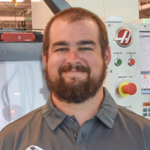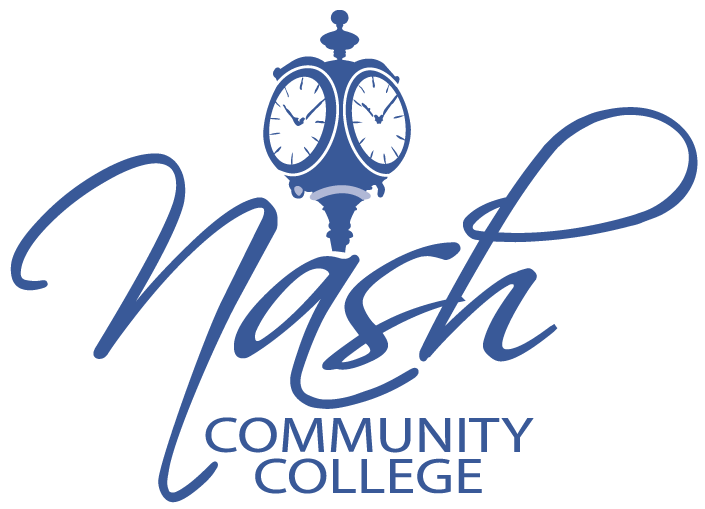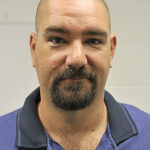Nash Community College is thrilled to announce its upcoming Open House event, an exciting opportunity for prospective students to explore the college’s offerings, meet faculty and staff, and discover the resources designed to help students succeed in their educational journey. This event will take place on April 5 from 9 a.m. to 1 p.m. and […]
Overview
The Welding Technology curriculum provides students with a sound understanding of the science, technology, and applications essential for successful employment in the welding and metalworking industry.
What you'll learn
Instruction includes consumable and non-consumable electrode welding and cutting processes. Courses may include math, blueprint reading, metallurgy, welding inspection, and destructive and non-destructive testing providing the student with industry-standard skills developed through classroom training and practical application.
Career Opportunities
Graduates of the Welding Technology curriculum may be employed as entry-level technicians in the welding and metalworking industries. Career opportunities also exist in construction, manufacturing, fabrication, sales, quality control, supervision, and welding-related self-employment.
Technical Core Courses
- WLD 110 Cutting Processes
- WLD 115 SMAW (Stick) Plate
- WLD 121 GMAW (MIG) FCAW/Plate
- WLD 131 GTAW (TIG) Plate
- WLD 141 Symbols and Specifications
Other Major Courses
- BPR 111 Print Reading
- CIS 110 Introduction to Computer
- DFT 151 CAD I
- ISC 112 Industrial Safety
- MAC 121 Intro. to CNC
- WLD 116 SMAW (Stick) Plate/Pipe
- WLD 122 GMAW (MIG) Plate/Pipe
- WLD 132 GTAW (TIG) Plate/Pipe
- WLD 151 Fabrication I
- WLD 251 Fabrication II
- WLD 261 Certification Practices
- WLD 262 Inspection and Testing
- WLD 265 Automated Welding/Cutting
General Education
- COM 110 Intro. to Communication or COM 120 Intro Interpersonal Communication or COM 231 Public Speaking
- ENG 110 Freshman Composition or ENG 111 Writing and Inquiry
- HUM/FA Humanities/Fine Arts Core Elect.
- MAT 121 Algebra/Trigonometry I or MAT 171 Precalculus Algebra
- SOC/BEH Social/Behavioral Sci. Core Elect.
Other Required Courses
- ACA 122 University Transfer Success
HUM/FA Elective (Select 1 course)
ART 111, ART 114, ART 115, DRA 111, ENG 231, ENG 232, ENG 233, ENG 241, ENG 242, ENG 261, ENG 262, HUM 110, HUM 115, HUM 120, HUM 130, HUM 150, HUM 160, HUM 180, HUM 211, HUM 212, MUS 110, MUS 112, PHI 215, PHI 220, PHI 230, PHI 240, REL 110, REL 211, REL 212
SOC/BEH Elective (Select 1 course)
ANT 210, ANT 220, ECO 251, ECO 252, GEO 111, HIS 111, HIS 112, HIS 121, HIS 122, HIS 131, HIS 132, POL 110, POL 120, POL 220, PSY 150, PSY 239, PSY 241,PSY 281, SOC 210, SOC 213, SOC 220, SOC 240
Technical Core Courses
- WLD 110 Cutting Processes
- WLD 115 SMAW (Stick) Plate
- WLD 121 GMAW (MIG) FCAW/Plate
- WLD 131 GTAW (TIG) Plate
- WLD 141 Symbols and Specifications
Other Major Courses
- CIS 110 Introduction to Computer
- DFT 151 CAD I
- MAC 121 Intro to CNC
- WLD 122 GMAW (MIG) Plate/Pipe
- WLD 132 GTAW (TIG) Plate/Pipe
- WLD 151 Fabrication I
- WLD 261 Certification Practices
- WLD 262 Inspection and Testing
General Education
- ENG 110 Freshman Composition or ENG 111 Writing and Inquiry
- MAT 110 Mathematical Measurement or MAT 121 Algebra/Trigonometry I
- WELDING TECHNOLOGY CERTIFICATE – GMAW (MIG) – C50420A
- WELDING TECHNOLOGY CERTIFICATE – SMAW (STICK) – C50420B
- WELDING TECHNOLOGY CERTIFICATE – GTAW (TIG) – C50420C
- WELDING TECHNOLOGY CERTIFICATE – FABRICATION – C50420D
- WELDING TECHNOLOGY CERTIFICATE – GENERAL WELDING – C50420E
- WELDING TECHNOLOGY CERTIFICATE – BASIC WELDING – C50420F
- Welding
- A50420 Welding Technology
- C50420A Welding Technology
- C50420B Welding Technology SMAW (Stick) Certificate
- C50420C Welding Technology GTAW (TIG) Certificate
- C50420D Welding Technology Fabrication Certificate
- C50420E Welding Technology General Welding Certificate
- C50420F Welding Technology Basic Welding Certificate
- D50420 Welding Technology Diploma
Overview
A course of study that prepares the students to apply basic engineering principles and technical skills to become technicians who design, build, install, test, troubleshoot, repair, and modify developmental and production electronic components, equipment, and systems such as industrial/computer controls, manufacturing systems, communication systems, and power electronic systems.
What You'll Learn
Includes instruction in mathematics, basic electricity, solid-state fundamentals, digital concepts, and microprocessors or programmable logic controllers.
Career Opportunities
Graduates should qualify for employment as electronics engineering technicians, field service technicians, instrumentation technicians, maintenance technicians, electronic testers, electronic systems integrators, bench technicians, and production control technicians.
Technical Core Courses
- ELC 131 Circuit Analysis I
- ELN 131 Analog Electronics I
- ELN 133 Digital Electronics
Program Major Courses
- ELN 232 Intro. to Microprocessors
- ELN 260 Prog Logic Controllers
- ELC 228 PLC Applications
Other Major Courses
- ATR 280 Robotic Fundamentals
- ATR 281 Automated Manufacturing
- CET 111 Computer Upgrade/Repair I
- CSC 151 Java Programming
- DFT 119 Basic CAD
- EGR 125 Appl Software for Tech
- ELC 131A Circuit Analysis I Lab
- ELC 213 Instrumentation
- ELC 117 Motors and Controls
- ELN 235 Data Communication Sys.
General Education
- COM 110 Intro. to Communication or COM 120 Intro. to Interpersonal Communication or COM 231 Public Speaking or ENG 114 Prof. Research and Reporting
- ENG 111 Writing and Inquiry or ENG 110 Freshman Composition
- HUM/FA Humanities/Fine Arts Core Elect.
- MAT 121 Algebra/Trigonometry I or MAT 171 Precalculus Algebra
- SOC/BEH Social/Behavioral Sci. Core Elect.
Other Required Courses
- ACA 122 University Transfer Success or ACA 115 Success & Study Skills
HUM/FA Elective (Select 1 course)
ART 111, ART 114, ART 115, DRA 111, ENG 231, ENG 232, ENG 233, ENG 241, ENG 242, ENG 261, ENG 262, HUM 110, HUM 115, HUM 120, HUM 130, HUM 150, HUM 160, HUM 180, HUM 211, HUM 212, MUS 110, MUS 112, PHI 215, PHI 220, PHI 230, PHI 240, REL 110, REL 211, REL 212
SOC/BEH Elective (Select 1 course)
ANT 210, ANT 220, ECO 251, ECO 252, GEO 111, HIS 111, HIS 112, HIS 121, HIS 122, HIS 131, HIS 132, POL 110, POL 120, POL 220, PSY 150, PSY 239, PSY 241,PSY 281, SOC 210, SOC 213, SOC 220, SOC 240
Technical Core Courses
- ELC 131 Circuit Analysis I
- ELN 131 Analog Electronics I
- ELN 133 Digital Electronics
Program Major Courses
- ELN 232 Introduction to Microprocessors
- ELN 260 Prog. Logic Controllers
- ELC 228 PLC Applications
Other Major Courses
- EGR 125 Appl Software for Tech
- ELC 131A Circuit Analysis I Lab
- ATR 280 Robotic Fundamentals or CET 111 Computer Upgrade/Repair I
- ELN 235 Data Communication Sys
General Education
- ENG 111 Writing and Inquiry
- MAT 121 Algebra/Trigonometry I or MAT 171 Precalculus Algebra
ELECTRONICS ENGINEERING TECHNOLOGY – BASIC ELECTRONICS CERTIFICATE – C40200A

Ricky Joyner
Overview
The General Occupational Technology curriculum provides individuals with an opportunity to upgrade their skills and to earn an associate degree by taking courses suited for their occupational interests and/or needs.
What You'll Learn
The curriculum content will be individualized for students according to their occupational interests and needs. A program of study for each student will be selected from associate degree level courses offered by the College.
Career Opportunities
Graduates will become more effective workers better qualified for advancements within their fields of employment and will become qualified for a wide range of entry-level employment opportunities.
General Education
Students must take a minimum of 15 semester hours including at least one course from each of the following areas: humanities/fine arts, social/behavioral sciences, natural sciences/mathematics, and a minimum of 6 semester hours of communications.
Major Courses
Select 18 SHC from a combination of core courses for curriculums approved to be offered by the College. Select from prefixes for major courses for curriculums approved to be offered by the College.
Minimum General Education Hours: 15
Minimum Major Course Hours: 49
Total Semester Hour Credits for AAS Degree: 64-76
A student may elect to take up to 8 semester credit hours of Co-op education with advisor approval.
Overview
The Industrial Systems Technology curriculum is designed to prepare or upgrade individuals to safely service, maintain, repair, or install equipment. Instruction includes theory and skill training needed for inspecting, testing, troubleshooting, and diagnosing industrial systems.
What You'll Learn
Students will learn multi-craft technical skills in blueprint reading, mechanical systems maintenance, electricity, hydraulics/pneumatics, welding, machining or fabrication along with various diagnostic and repair procedures. Practical application in these industrial systems will be emphasized and additional advanced course work may be offered.
Career Opportunities
Upon completion of this curriculum, graduates should be able to individually, or with a team, safely install, inspect, diagnose, repair, and maintain industrial process and support equipment. Students will also be encouraged to develop their skills as lifelong learners.
Technical Core Courses
- BPR 111 Print Reading
- ELC 131 Circuit Analysis I
- HYD 110 Hydraulics/Pneumatics
- ISC 112 Industrial Safety
- MAC 141 Machining Applications I
- MNT 110 Intro to Maint Procedures
- WLD 112 Basic Welding Processes
Required Subject Area Courses
- ELC 113 Residential Wiring
- ELC 117 Motors & Controls
- ELC 115 Industrial Wiring
Other Major Courses
- AHR 110 Introduction to Refrigeration
- AHR 112 Heating Technology
- ATR 280 Robotic Fundamentals
- DFT 151 CAD I
- EGR 125 Appl Software for Tech
- ELC 131A Circuit Analysis I Lab
- ELN 260 Prog Logic Controllers
- ELC 131A Circuit Analysis Lab
General Education
- COM 110 Introduction to Communication or COM 120 Intro Interpersonal Communication or COM 231 Public Speaking
- ENG 110 Freshman Composition or ENG 111 Writing and Inquiry
- HUM/FA Humanities/Fine Arts Core Elective
- MAT 121 Algebra/Trigonometry I or MAT 171 Precalculus Algebra
- SOC/BEH Social/Behavioral Sci. Core Elective
Other Major Elective Courses (Select 4 hours from the following courses)
- ELC 228 PLC Applications
- MAC 121 Intro. to CNC
- MAC 141A Machining Applications Lab
- MAC 142 Machining Applications II
Other Required Courses
- ACA 122 University Transfer Success
HUM/FA Elective (Select 1 course)
ART 111, ART 114, ART 115, DRA 111, ENG 231, ENG 232, ENG 233, ENG 241, ENG 242, ENG 261, ENG 262, HUM 110, HUM 115, HUM 120, HUM 130, HUM 150, HUM 160, HUM 180, HUM 211, HUM 212, MUS 110, MUS 112, PHI 215, PHI 220, PHI 230, PHI 240, REL 110, REL 211, REL 212
SOC/BEH Elective (Select 1 course)
ANT 210, ANT 220, ECO 251, ECO 252, GEO 111, HIS 111, HIS 112, HIS 121, HIS 122, HIS 131, HIS 132, POL 110, POL 120, POL 220, PSY 150, PSY 239, PSY 241,PSY 281, SOC 210, SOC 213, SOC 220, SOC 240
Major Core Courses
- BPR 111 Blueprint Reading
- ELC 111 Intro. to Electricity or ELC 131 Circuit Analysis I
- HYD 110 Hydraulics/Pneumatics I
- ISC 112 Industrial Safety
- MAC 141 Machining Applications I
- MNT 110 Intro. to Maint. Procedures
- WLD 112 Basic Welding Processes
Other Major Courses (Choose 12-14 hours from the following courses:)
- AHR 110 Intro. to Refrigeration
- AHR 112 Heating Technology
- ATR 280 Robotic Fundamentals
- DFT 151 CAD I
- EGR 125 Appl Software for Tech
- ELC 113 Residential Wiring
- ELC 115 Industrial Wiring
- ELC 117 Motors and Controls
- ELC 131A DC/AC Circuit Analysis Lab
- ELN 260 Prog Logic Controllers
General Education
- ENG 110 Freshman Composition or ENG 111 Writing and Inquiry
- MAT 110 Mathematical Measurement or MAT 121 Algebra/Trigonometry I
- INDUSTRIAL SYSTEMS TECHNOLOGY – HVAC CERTIFICATE – C50240A
- INDUSTRIAL SYSTEMS TECHNOLOGY – MECHANICAL CERTIFICATE – C50240B
- INDUSTRIAL SYSTEMS TECHNOLOGY – MACHINING MAINTENANCE CERTIFICATE – C50240D
- Industrial Systems
Overview
A program that prepares individuals to apply technical knowledge and skills to repair, service, and maintain all types of automobiles.
What You'll Learn
Includes instruction in brake systems, electrical systems, engine performance, engine repair, suspension and steering, automatic and manual transmissions and drive trains, and heating and air conditioning systems.
Career Opportunities
Graduates should be prepared to take professional licensure exams and enter careers as entry-level technicians in the transportation industry.
Technical Core Courses
- TRN 110 Intro to Transport Tech
- TRN 120 Basic Transp Electricity
- TRN 145 Adv Transp Electronics
Program Major Courses
- AUT 141 Suspension and Steering Sys
- AUT 151 Brake Systems
- AUT 181 Engine Performance I
- AUT 116 Engine Repair
- AUT 141A Suspension and Steering Lab
- AUT 151A Brakes Systems Lab
- AUT 163 Adv Auto Electricity
- AUT 183 Engine Performance II
- AUT 212 Auto Shop Management
- AUT 221 Auto Transm/Transaxles
- AUT 281 Advanced Engine Performance
- TRN 140 Transp Climate Control
- TRN 140A Transp Climate Cont Lab
General Education
- COM 110 Intro. to Communication or COM 231 Public Speaking
- ENG 110 Freshman Composition or ENG 111 Writing and Inquiry
- HUM/FA Humanities/Fine Arts Core Elective
- MAT 121 Algebra/Trigonometry I or MAT 171 Precalculus Algebra
- SOC/BEH Social/Behav. Sci. Core Elective
Other Required Courses
- ACA 122 University Transfer Success
- CIS 110 Intro to Computers
Elective (Choose 6 hours from the list below)
- AUT 113 Auto Servicing I or WBL 112 Work Based Learning I
- AUT 114 Safety and Emissions
- AUT 114A Safety and Emissions Lab
- AUT 213 Auto Servicing II or WBL 122 Work Based Learning II
- AUT 163A Adv Auto Electricity Lab
- AUT 181A Engine Performance I Lab
- AUT 231 Manual Trans/Axles/Drtrains
- TRN 120A Basic Transp Electricity Lab
- TRN 130 Intro. to Sustainable Transp
HUM/FA Elective (Select 1 course)
ART 111, ART 114, ART 115, DRA 111, ENG 231, ENG 232, ENG 233, ENG 241, ENG 242, ENG 261, ENG 262, HUM 110, HUM 115, HUM 120, HUM 130, HUM 150, HUM 160, HUM 180, HUM 211, HUM 212, MUS 110, MUS 112, PHI 215, PHI 220, PHI 230, PHI 240, REL 110, REL 211, REL 212
SOC/BEH Elective (Select 1 course)
ANT 210, ANT 220, ECO 251, ECO 252, GEO 111, HIS 111, HIS 112, HIS 121, HIS 122, HIS 131, HIS 132, POL 110, POL 120, POL 220, PSY 150, PSY 239, PSY 241,PSY 281, SOC 210, SOC 213, SOC 220, SOC 240
Technical Core Courses
- TRN 110 Intro to Transport Tech
- TRN 120 Basic Transp Electricity
- TRN 145 Adv Transp Electronics
Program Major Courses
- AUT 116 Engine Repair
- AUT 141 Suspension and Steering Sys
- AUT 151 Brake Systems
- AUT 181 Engine Performance
Other Major Courses
- AUT 141A Suspension and Steering Lab
- AUT 151A Brakes Systems Lab
- AUT 163 Advanced Auto Electricity
- AUT 183 Engine Performance II
- AUT 212 Auto Shop Management
- AUT 221 Auto Transm/Transaxles
General Education Courses
- ENG 110 Freshman Composition or ENG 111 Writing and Inquiry
- MAT 110 Mathematical Measurement or MAT 121 Algebra/Trigonometry I
Elective (choose 4 hours from the list below)
- AUT 114 Safety and Emissions
- AUT 163A Advanced Auto Electricity Lab
- AUT 181A Engine Performance I Lab
- WBL 112 Work Based Learning I
- TRN 120A Basic Transp Electricity Lab
- TRN 130 Intro. to Sustainable Transp
- TRN 140 Transp Climate Control
- TRN 140A Transp Climate Cont Lab
- Basic Automotive Systems Certificate – C60160A
- Advanced Automotive Systems Certificate – C60160B
- Automotive Systems – Brakes and Suspension Certificate – C60160C
- Automotive Systems – Electrical – Certificate – C60160D
- Automotive Systems – Engine Performance Certificate – C60160E
- Auto Systems Tech
- A60160 Automotive Systems Technology
- D60160 Automotive Systems Technology Diploma
- C60160A Basic Automotive Systems Certificate
- C60160B Advanced Automotive Systems Certificate
- C60160C Brakes and Suspension Certificate
- C60160D Automotive Systems Electrical Certificate
- C60160E Engine Performance Certificate
Overview
A course of study that prepares the students to use basic engineering principles and technical skills for installing, servicing, and maintaining computers, peripherals, networks, and microprocessor- and computer-controlled equipment.
What You'll Learn
Includes instruction in mathematics, computer electronics and programming, prototype development and testing, systems installation and testing, solid state and microminiature circuitry, peripheral equipment, and report preparation.
Career Opportunities
Graduates should qualify for employment opportunities in electronics technology, computer service, computer networks, server maintenance, programming, and other areas requiring knowledge of electronic and computer systems. Graduates may also qualify for certification in electronics, computers, or networks.
Technical Core Courses
- ELC 131 Circuit Analysis I
- ELN 131 Analog Electronics I
- ELN 133 Digital Electronics
Program Major Courses
- CET 111 Computer Upgrade/Repair I
- CET 211 Computer Upgrade/Repair II
- CSC 151 Java Programming
- ELN 235 Data Communication Systems
Other Major Courses
- CET 130 Operating Systems Prin.
- CET 251 Software Eng. Principles
- CET 293 Selected Topic Seminar
- CSC 143 Object-Oriented Prog.
- CSC 251 Adv. Java Programming
- EGR 125 Appl Software for Tech
- ELC 131A Circuit Analysis I Lab
- ELN 232 Intro. to Microprocessors
- ELN 237 Local Area Networks
- ELN 238 Advanced LANs
- CET 245 Internet Servers
General Education
- COM 110 Intro. to Communication or COM 120 Intro Interpersonal Communication
COM 231 Public Speaking - ENG 111 Writing and Inquiry
- MAT121 Algebra/Trigonometry I
- HUM/FA Elective
- SOC/BEH Elective
Other Required Courses
- ACA 122 University Transfer Success
HUM/FA Elective (Select 1 course)
ART 111, ART 114, ART 115, DRA 111, ENG 231, ENG 232, ENG 233, ENG 241, ENG 242, ENG 261, ENG 262, HUM 110, HUM 115, HUM 120, HUM 130, HUM 150, HUM 160, HUM 180, HUM 211, HUM 212, MUS 110, MUS 112, PHI 215, PHI 220, PHI 230, PHI 240, REL 110, REL 211, REL 212
SOC/BEH Elective (Select 1 course)
ANT 210, ANT 220, ECO 251, ECO 252, GEO 111, HIS 111, HIS 112, HIS 121, HIS 122, HIS 131, HIS 132, POL 110, POL 120, POL 220, PSY 150, PSY 239, PSY 241,PSY 281, SOC 210, SOC 213, SOC 220, SOC 240
Technical Core Courses
- ELC 131 Circuit Analysis I
- ELN 131 Analog Electronics I
- ELN 133 Digital Electronics
Program Major Courses
- CET 111 Computer Upgrade/Repair I
- CET 211 Computer Upgrade/Repair II
- CSC 151 Java Programming
- ELN 235 Data Communication Sys.
Other Major Courses
- EGR 125 Appl Software for Tech
- ELC 131A Circuit Analysis I Lab
- ELN 232 Intro. to Microprocessors
- ELN 237 Local Area Networks
General Education
- ENG 111 Writing and Inquiry
- MAT 121 Algebra/Trigonometry I
- Computer Engineering Technology – Networking Certificate – C40160A
- Computer Engineering Technology – Computer Programming Certificate – C40160B
- Computer Engineering Technology – PC Build and Repair Certificate – C40160C

Wanda Tyson

Gregory Grogan
Overview
The Computer-Integrated Machining curriculum prepares students with the analytical, creative and innovative skills necessary to take a production idea from an initial concept through design, development and production, resulting in a finished product.
What You'll Learn
Coursework includes learning objectives in manual machining, computer applications, engineering design, computer-aided drafting (CAD), computer-aided machining (CAM), blueprint interpretation, advanced computerized numeric control (CNC) equipment, basic and advanced machining operations, precision measurement and high-speed multi-axis machining.
Career Opportunities
Graduates should qualify for employment as machining technicians in high-tech manufacturing, rapid-prototyping and rapid-manufacturing industries, specialty machine shops, fabrication industries, and high-tech or emerging industries such as aerospace, aviation, medical, and renewable energy, and to sit for machining certification examinations.
Major Core Courses
- BPR 111 Print Reading
- MAC 124 CNC Milling
- MAC 141 Machining Applications I
- MAC 142 Machining Applications II
Other Major Courses
- DFT 119 Basic CAD
- ISC 112 Industrial Safety
- MAC 121 Introduction to CNC
- MAC 122 CNC Turning
- MAC 141A Machining Appl I Lab
- MAC 142A Machining Appl II Lab
- MAC 143 Machining Applications III
- MAC 151 Machining Calculations
- MAC 152 Adv. Machining Calculations
- MAC 171 Measure/Material & Safety
- MAC 224 Advanced CNC Milling
- MAC 226 CNC EDM Machining
- MAC 241 Jigs and Fixtures I
- MEC 231 Comp-Aided Manufact. I
- MEC 232 Comp-Aided Manufact. II
General Education
- COM 110 Introduction to Communication or COM 120 Intro Interpersonal Communication or COM 231 Public Speaking
- ENG 110 Freshman Composition or ENG 111 Writing and Inquiry
- MAT 121 Algebra/Trigonometry I or MAT 171 Precalculus Algebra
- HUM/FA Humanities/Fine Arts Core Elective
- SOC/BEH Social/Behavioral Sci. Core Elective
Other Major Elective Courses (Choose 10 hours from list below)
- ATR 280 Robotic Fundamentals
- ATR 281 Automated Manufacturing
- WBL 112 Work Based Learning I
- MAC 222 Advanced CNC Turning
- MAC 234 Adv. Muilti-Axis Machining
- MAC 247 Production Tooling
- MAC 248 Production Procedures
- WLD 112 Basic Welding Processes
- WLD 151 Fabrication I
- WLD 251 Fabrication II
Other Required Courses
- ACA 122 University Transfer Success
HUM/FA Elective (Select 1 course)
ART 111, ART 114, ART 115, DRA 111, ENG 231, ENG 232, ENG 233, ENG 241, ENG 242, ENG 261, ENG 262, HUM 110, HUM 115, HUM 120, HUM 130, HUM 150, HUM 160, HUM 180, HUM 211, HUM 212, MUS 110, MUS 112, PHI 215, PHI 220, PHI 230, PHI 240, REL 110, REL 211, REL 212
SOC/BEH Elective (Select 1 course)
ANT 210, ANT 220, ECO 251, ECO 252, GEO 111, HIS 111, HIS 112, HIS 121, HIS 122, HIS 131, HIS 132, POL 110, POL 120, POL 220, PSY 150, PSY 239, PSY 241,PSY 281, SOC 210, SOC 213, SOC 220, SOC 240
Major Core Courses
- BPR 111 Print Reading
- MAC 124 CNC Milling
- MAC 141 Machining Applications I
- MAC 142 Machining Applications II
Other Major Courses
- DFT 119 Basic CAD
- ISC 112 Industrial Safety
- MAC 121 Introduction to CNC
- MAC 122 CNC Turning
- MAC 141A Machining Appl I Lab
- MAC 142A Machining Appl II Lab
- MAC 143 Machining Applications III
- MAC 151 Machining Calculations
- MAC 152 Adv. Machining Calculations
- MAC 171 Measure/Material & Safety
General Education Courses
- ENG 110 Freshman Composition or ENG 111 Writing and Inquiry
- MAT 110 Mathematical Measurement or MAT 121 Algebra/Trigonometry I
- Computer-Integrated Machining – Machine Operator Certificate – C50210A
- Computer-Integrated Machining – Computer Numerical Controlled Certificate – C50210B
- Computer-Integrated Machining – Advanced CNC Certificate C50210C
- Computer-Integrated Machining – Robotics Machining Certificate – C50210D

Jason Brannan
Overview
This curriculum is designed to provide training for persons interested in the installation and maintenance of electrical systems found in residential, commercial, and industrial facilities.
What You'll Learn
Coursework, most of which is hands-on, will include such topics as AC/DC theory, basic wiring practices, programmable logic controllers, industrial motor controls, applications of the National Electrical Code, and other subjects as local needs require.
Career Opportunities
Graduates should qualify for a variety of jobs in the electrical field as an on-the-job trainee or apprentice assisting in the layout, installation, and maintenance of electrical systems.
Technical Core Courses
- ELC 113 Residential Wiring
- ELC 117 Motors and Controls
- ELC 131 Circuit Analysis I
- ELC 131A Circuit Analysis I Lab
- ELN 260 Pro Logic Controllers
Required Subject Area Courses
- ELC 115 Industrial Wiring
- ELC 228 PLC Applications
- ELC 213 Instrumentation
General Education Courses
- COM 110 Introduction to Communication or
COM 120 Intro Interpersonal Communication or COM 231 Public Speaking - ENG 110 Freshman Composition or ENG 111 Writing and Inquiry
- Humanities/Fine Arts Core Elective
- MAT 121 Algebra/Trigonometry or MAT 171 Precalculus Algebra
- Social/Behavioral Science Core Elective
Other Major Courses
- ATR 280 Robotic Fundamentals
- ATR 281 Automated Manufacturing
- EGR 125 Appl Software for Tech
- ELN 235 Data Communication Systems
- ELN 131 Analog Electronics I
- HYD 110 Hydraulics/Pneumatics I
- ISC 112 Industrial Safety
- PCI 264 Process Control with PLCs
Other Required Courses
- ACA 122 University Transfer Success
- HUM/FA Elective (Select 1 course)
ART 111, ART 114, ART 115, DRA 111, ENG 231, ENG 232, ENG 233, ENG 241, ENG 242, ENG 261, ENG 262, HUM 110, HUM 115, HUM 120, HUM 130, HUM 150, HUM 160, HUM 180, HUM 211, HUM 212, MUS 110, MUS 112, PHI 215, PHI 220, PHI 230, PHI 240, REL 110, REL 211, REL 212 - SOC/BEH Elective (Select 1 course)
ANT 210, ANT 220, ECO 251, ECO 252, GEO 111, HIS 111, HIS 112, HIS 121, HIS 122, HIS 131, HIS 132, POL 110, POL 120, POL 220, PSY 150, PSY 239, PSY 241,PSY 281, SOC 210, SOC 213, SOC 220, SOC 240
Technical Core Courses
- ELC 113 Residential Wiring
- ELC 117 Motors and Controls
- ELC 131 Circuit Analysis I
Required Subject Area Courses
- ELC 131A Circuit Analysis I Lab
- ELN 260 Pro Logic Controllers
- ELC 115 Industrial Wiring
- ELC 213 Instrumentation
General Education Courses
- ENG 110 Freshman Composition or ENG 111 Writing and Inquiry
- MAT 121 Algebra/Trigonometry or MAT 171 Precalculus Algebra
Other Major Courses
- ELN 131 Analog Electronics
- EGR 125 Appl Software for Tech
- ISC 112 Industrial Safety
- ELECTRICAL WIRING CERTIFICATE – C35130A
- ELECTRICAL CONTROLS CERTIFICATE – C35130B
- PLC CONTROLS CERTIFICATE – C35130C
- INDUSTRIAL ROBOTICS CERTIFICATE – C35130D
- INSTRUMENTATION CERTIFICATE – C35130E
- A35130 Electrical Systems Technology
- C35130A Electrical Systems Technology Electrical Wiring Certificate Checksheet
- C35130B Electrical Controls
- C35130C Electrical Systems Technology PLC Controls Certificate
- C35130D Electrical Systems Technology Industrial Robotics Certificate
- C35130E Electrical Systems Technology Instrumentation Certificate Checksheet
- D35130 Electrical Systems Technology






